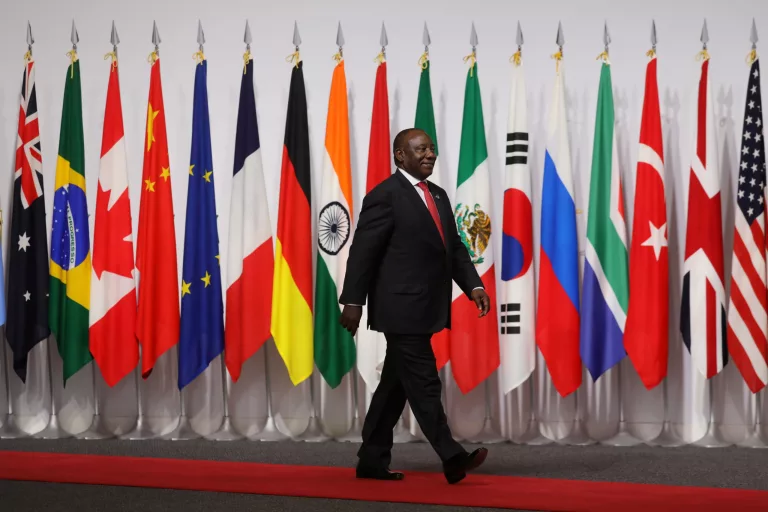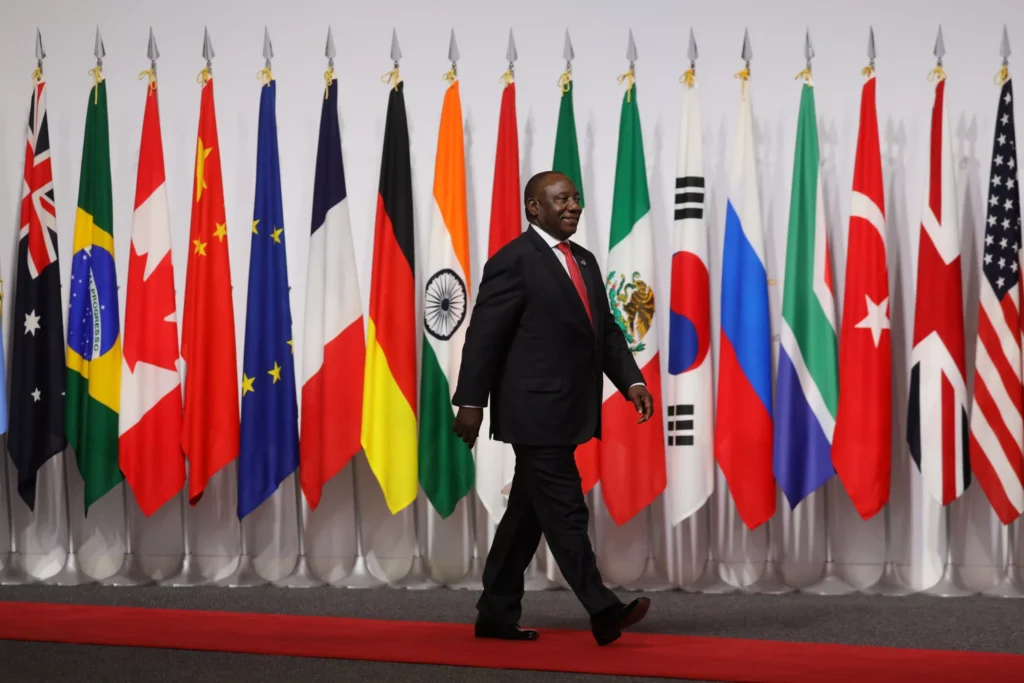At a groundbreaking moment on the African continent, South Africa will host the 2025 G20 Summit. This is the first time this prestigious global gathering has been held in Africa.
The summit, scheduled to be held in Johannesburg from November 22-23, brings together heads of state, finance ministers, central bank governors and global decision-makers to discuss and shape policies on some of the world's most pressing economic, social and environmental issues.
For South Africa, this is more than just a diplomatic milestone. This is an opportunity to position the country as a powerful voice of global governance, showcase the possibilities of tourism and investment, and highlight Africa's developmental priorities.

Ludovic Marin/AFP via Getty Images)
Why is the 2025 G20 Summit important?
The 20 groups (G20) are made up of 19 groups from the world's most industrialized emerging economies and the European Union. Collectively, these countries account for more than 80% of the world's GDP and two-thirds of the world's population. The G20 revolving presidency is influential, providing an opportunity to set an agenda for host countries and draw attention to local concerns.
Under the theme of “solidarity, equality and sustainability,” South Africa is committed to defending inclusive development. Its main focus areas include:
Comprehensive economic growth and industrialization: Job creation, value chain development, and promoting fair access to global markets. Food Security: A strategy to combat hunger, support smallholder farmers, and create a climate-bearing agricultural system. Using artificial intelligence and innovation: Encourage the development of ethical AI and close the digital gap. Sustainable Financing: Advocate for reforms of global financial institutions to better serve the economies of developing countries.
“This presidency is not symbolic,” South African President Cyril Ramaphosa said in a 2024 speech. “This is Clarion's call for global governance and fairness in investment in Africa's future.”
World-wide tourism opportunities
For the local tourism industry, the 2025 G20 Summit is a great opportunity. Hosting thousands of representatives, security guards, media representatives and civil society groups around the world, the event creates important economic activities, from luxury accommodation and restaurants to guided tours and cultural experiences.
South African tourism says the country expects more than R1.2 billion in direct tourism revenue from the summit. Important attractions in and around Johannesburg, including the Apartheid Museum, Constitutional Hill and Villakazi Street in Soweto, are expected to be prominently featured in the curated summit itinerary. Gauteng hotels and lodges are already preparing for an influx.
The Tourism Portfolio Committee also confirmed increased investment in visitor safety, event infrastructure and multilingual hospitality training.
Also Read: Monster Storms Hitting South Africa This Week
History and role of the South African G20
South Africa has been a member of the G20 since its founding in 1999. It is the only African country in the group and often serves as the voice of emerging markets and the broader global south. For many years, South Africa has used its seats to defend climate justice, trade reforms and better representation for developing countries in institutions such as the World Bank and the IMF.
The 2025 summit shows the maturity of South Africa's diplomatic engagement and affirms its role as a regional powerhouse. Logistically, the summit represents a large-scale effort. Preparations are already underway to secure venues, upgrade airport infrastructure and deploy high levels of security. The Sandon Convention Centre in Johannesburg, known for hosting global events, is expected to be the main summit venue.
However, the summit is not without geopolitical tensions. Secretary of State Marco Rubio reportedly reduced attendance, citing disagreements in South Africa's policy regarding land reform and international stance, as reported in an article from the Economic Era.
This underscores the complexities of global diplomacy. And South Africa's tightrope walk must walk to assert its priorities without alienating its key partners.
Legacy and long-term impact
Beyond the two-day event, the G20 Summit is expected to leave a lasting legacy in terms of tourism infrastructure, international recognition and diplomatic capital. South Africa is hoping to use its momentum to secure prominent meetings and trade delegations of the future, further embedding Johannesburg as a global city.
Many compare it to 2010 when South Africa hosted the FIFA World Cup. This is a unified event that has put the country in the global spotlight and has heightened the pride of its people. Tourism operators hope that 2025 will ignite a wave of similar interest and growth.
“We're looking forward to seeing you in the world,” said Thabo Mokgola, a Johannesburg-based travel consultant. “South Africa is ready not only to be on the weekends, but also to the world stage.”
With the countdown to the 2025 G20 Summit beginning, South Africa is at a historic crossroads. There are platforms, stories and people to make this summit a critical moment. Not just for itself, but for the entire continent. For travelers, it is an invitation to witness the nation that shapes the future.
Follow us on social media for more travel news, inspiration and guides. You can also tag them as they are featured.
Tiktok | Instagram | Facebook | Twitter
Also Read: Best Places to See Most Endangered Animals in Africa and Tips for Ethical and Responsible Tourism


